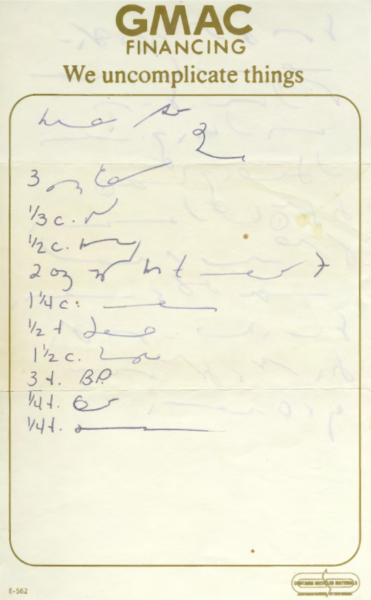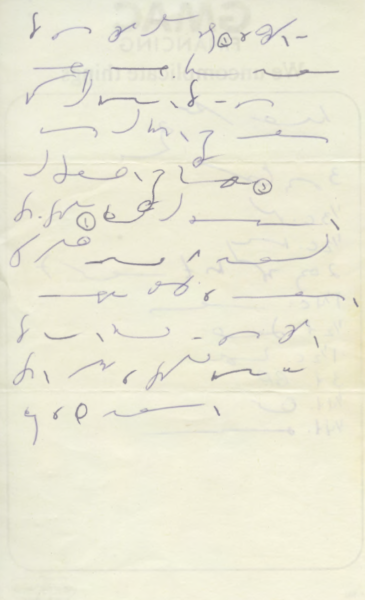

The recipe pictured is one from my mother’s recipe box. I have long suspected that it was a recipe for fried green tomatoes that I asked her to write down from a news broadcast one day when we living with my grandmother. She joyfully delivered the recipe to me in shorthand, something I could not read, and refused to translate it. As mean as the interlude sounds, my mother was a wonderful woman, promise. And, though I suspect tomatoes, I’ve really always hoped the recipe was for her fruitcake, since I have yet found no trace of her fruitcake anywhere in her cook books or recipe box.
At some point in my youth I was actually inspired to study shorthand. I am not sure whether it was before or after the tomatoes. I got significantly less far along with it than I did with my short bout of speed reading practice. So the recipe above is still a mystery. I believe it is Gregg shorthand, the U.S. standard at the time my mother would’ve learned, and I have since found a fabulous site dedicated to keeping Greg shorthand alive: Gregg Shorthand site. It includes a Greg Shorthand Dictionary that may help me figure out the recipe above. I’ve also found a translation engine that can translate your text into shorthand. Unfortunately it doesn’t work the other way around.
What I had no concept of when I started investigating a means to translate the recipe is the great history of shorthand and the many ways it has been used. On Tracey Jennings Harding transcription service web site, Harding frequently shares stories of postcards, letters, and other interesting historical ephemera that she’s been hired to translate by people who, like me, can’t read the strange code their predecessors used to record their lives. Harding doesn’t work with Gregg shorthand, as she is fluent in the U.K. standard shorthand style: Pitman, which preceded Gregg in popularity for the English speaking world.
In case you want to follow me along in an exploration of the wartime letters, fan mail, and diaries that have been written in shorthand throughout history, here are some starting points:

3 Comments
Very interesting! And I love that an unreadable recipe is written on a notepad that says “We uncomplicate things”. It’s quite poetic.
I agree. I actually misread it the other morning and thought for a moment that it said: “we complicate things.”
That would not be the best marketing slogan. Haha!